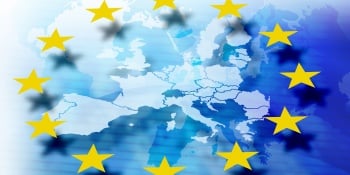Published: 27.06.2023

- The Council of the European Union has presented its position on a draft directive on preventing and combating violence against women and domestic violence.
- Work on the draft has been ongoing since last year, when the document was published by the European Commission.
- The directive raises a number of doubts, including due to the language used, most notably the document's use of vague terms and numerous references to the gendered Istanbul Convention.
- In addition, the document proposes criminalizing deliberate incitement to violence and hatred on the Internet on the grounds of "gender," which could serve as a pretext for significantly restricting freedom of expression.
- The Council, following the Commission, also demands, among other things, the promotion of "appropriate" behavioral changes in society or the use of "gender-sensitive" language by officials.
- The Council's abandonment of regulating the crime of rape within the directive is also a significant change.
The biggest concern in the revised directive is the widespread and inconsistent use of the term "gender" (according to which gender is a socio-cultural construct), instead of the word "sex," meaning biological sex. The term "gender" itself appears as many as 25 times in the directive, including several times as part of vague and ideological formulations, such as "gender-based violence," "gender equality," "gender roles" or "gender stereotypes." The directive also contains numerous references to the Istanbul Convention, which sees the sources of violence, among other things, in traditional gender roles. Significantly, in the Council's amendments, the word "sex," which often appears together with the word "gender," was deleted in many places, after which the recommended version of the document retained only the second term.
Also of concern was the wording of Article 10, under which states are required to punish intentional incitement to violence or hatred on the Internet on the basis of "gender." Such provisions of the directive raise legitimate concerns that it could serve as a tool introduced through a side door, aimed at preventing any criticism of ideological assumptions. Such solutions pose a significant threat to freedom of expression.
The directive also includes provisions requiring states to take appropriate measures to, among other things, combat harmful gender stereotypes ("harmful gender stereotypes"), promote "appropriate" behavioral changes in society (Article 36), and ensure that officials address victims in a "gender-sensitive manner" ("gender-sensitive manner," Article 37).
Another important change is the abandonment of the directive's inclusion of a definition of the crime of rape based solely on lack of consent. This is due to protests from some countries, which claim that the European Union has no competence in this matter, and that setting a precedent could increase Brussels' influence.
The European Economic and Social Committee also submitted its opinion on the directive last year. In its prepared conclusions, it made far-reaching proposals, pointing out, "we note with concern that the definition of violence against women does not take into account the current restrictions on the free and safe termination of pregnancy, as well as the harassment, primarily near clinics, experienced by women who voluntarily choose this solution."
- The draft directive presented raises a number of concerns. Particularly dangerous is the extensive use of the vague and ideologically charged term "gender." The provision ordering states to punish intentional incitement to violence or hatred on the Internet on the basis of "gender" is also dangerous, which, as a result of the vagueness of the term, could result in a far-reaching restriction of freedom of expression," points out Patryk Ignaszczak of the Ordo Iuris Center for International Law.

19.04.2024
· A draft directive on combating violence against women is being discussed in the European Parliament.
· This draft may raise concerns due to its extremely broad definition of ‘violence’, as well as the government’s mandate to censor ‘offensive’ online content or its obligation to combat ‘harmful gender stereotypes’.
· The directive may also entail a restriction of the presumption of innocence in cases of sexual offences, by indirectly presuming a man’s guilt.

· The European Parliament adopted a resolution calling for the inclusion of the so-called right to abortion in the Charter of Fundamental Rights of the European Union.

22.03.2024
A few weeks ago the European Parliament adopted a directive on „protecting persons who engage in public participation from manifestly unfounded or abusive court proveedings” („strategic lawsuits against public participation” - SLAPP).

12.03.2024
Through the proposed amendments to the European Union treaties, the unelected European Commission aims to "build a superstate that will be highly centralized in the economic, military, political, and social areas". If this plan succeeds, it will create a strong center of power centered on Germany.